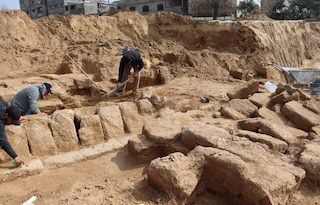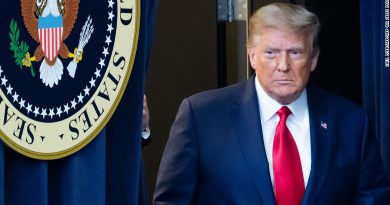International Forum in Saudi Arabia talks about India’s Diversity as Strategic Asset
Riyadh – International Journalists Fraternity Forum in Riyadh, Saudi Arabia held its first conclave under the theme “India’s Diversity a Strategic Asset” on Friday. It was attended by more than 100 notable community members and Saudi citizens. The event aimed to highlight India’s advancements and accomplishments while dispelling attendees’ doubts and misperceptions.
The panellists, who came from various professions and included journalists, academics, and businessmen, discussed India’s diversity and how it may be leveraged as a strategic asset to develop the country’s global image.
Popular figures spoke at the event, including Taleem-o-Tarbiyat – Educational Initiative for the Underprivileged founder Zafar Sareshwala and former chancellor of Maulana Azad National Urdu University. Malek Raees Ahmed, Director of Anjam Group in Saudi Arabia, is a significant contributor and frequent speaker at Power and Energy forums for renewable energy. President of the Abul Kalam Azad Islamic Awakening Centre and chancellor of Delhi’s Jamia Islamia Sanabil University is Shaykh Mohammad Rahmani.
The eminent panellists spoke extensively during the event on a variety of national political issues, emphasising both the advancements made by the Indian people as a whole and the actions the government had done to ensure their wellbeing.
The panellists also discussed the issue of false information being spread about India on social media during the conversation. They emphasised how some people with personal agendas spread untruths to alter the perception of India on a global scale.
According to Islamic scholar Shaykh Rahmani, tolerance and cooperation with non-Muslims are crucial, and both parties must uphold one other’s rights. He stressed that respecting all people, including non-Muslims, is a fundamental Islamic concept and that more discussion of non-Muslim rights is needed because they are currently being disregarded.
Shaykh Rahmani recommended that Indian Muslims look up to Moulana Abul Kalam Azad, who served as India’s first minister of education and created prestigious institutions like the IIT. In order to improve their way of life both in the world and in their religion, he urged Indian Muslims to concentrate on empowering women’s education.
Shaykh Rahmani also emphasised the value of patience and tenacity in resolving problems that the Muslim community faces. He underlined that Muslims had historically prevailed in conflict by opening lines of communication, handling pressing matters deftly, and adhering to a reasonable system. He added that it is the duty of mosque imams to teach Muslims how to be patient and handle situations appropriately.
Shaykh Rahmani also voiced worry about the influence of well-known figures on social media who render opinions without checking their facts. He cautioned against following such people since they sit in private spaces and lack the knowledge essential to deliver reliable information.
According to Zafar Sareshwala, a sizeable portion of Hindus support the advancement and prosperity of Muslims. He stressed that Muslims have the freedom to pursue their career objectives and that no one has prevented them from taking the UPSC exams.
Sareshwala emphasised the need to prioritise what has to be addressed first when it comes to addressing challenges faced by Muslims, such as political empowerment and security.
He also commended the Indian government’s initiatives to mainstream the country’s 15% Muslim community and assist it in achieving its ambition to become a global economic force.
Malek Raees voiced his optimism for India’s enormous potential. He added that he had discussed the potential of an exchange programme between Saudi Arabia and India with the Indian Minister of Human Resource Development.
He stressed that India is of interest to the Gulf nations because of its vast potential.
The panellists also discussed India’s position in the global system, particularly in light of the G20 and other major international conferences. They emphasised how peaceful and tolerant India is towards all peoples and nations.
The panellists informed the sizable crowd of Indian diaspora members that India is an example of peaceful coexistence in the globe since it allows people of all religions to freely practise their religion.
The speakers emphasised the importance of ethical and responsible journalism that fosters communication, empathy, and respect for one another.
They talked on how variety has always been India’s strength and how it has aided in overcoming obstacles, fostering resilience, and encouraging creativity. They also emphasised how India’s cultural variety may be used to advance social cohesion, economic development, and world peace.
A well-known businessman and IJFF KSA President, Dr. Ashraf Ali, stressed the significance of having Indian citizenship while residing in Saudi Arabia. He emphasised the need to always portray India in a positive light and to never ruin the country’s reputation.
Along with her colleague Nayeem Abdul Qayyum, notable female journalist Shahzeen Eram moderated the panel discussion.
A nonprofit organisation called the IJFF works to advance media literacy, ethical journalism, and freedom of speech. It offers a forum for journalists from many countries to interact, discuss ideas, and work together on topics of shared interest.
The “India’s Diversity a Strategic Asset” event was a component of the IJFF’s ongoing initiatives to foster cross-cultural understanding and collaboration among journalists, academics, and subject-matter specialists. The gathering gave attendees a special chance to interact with one another, exchange viewpoints, and create long-lasting relationships.



